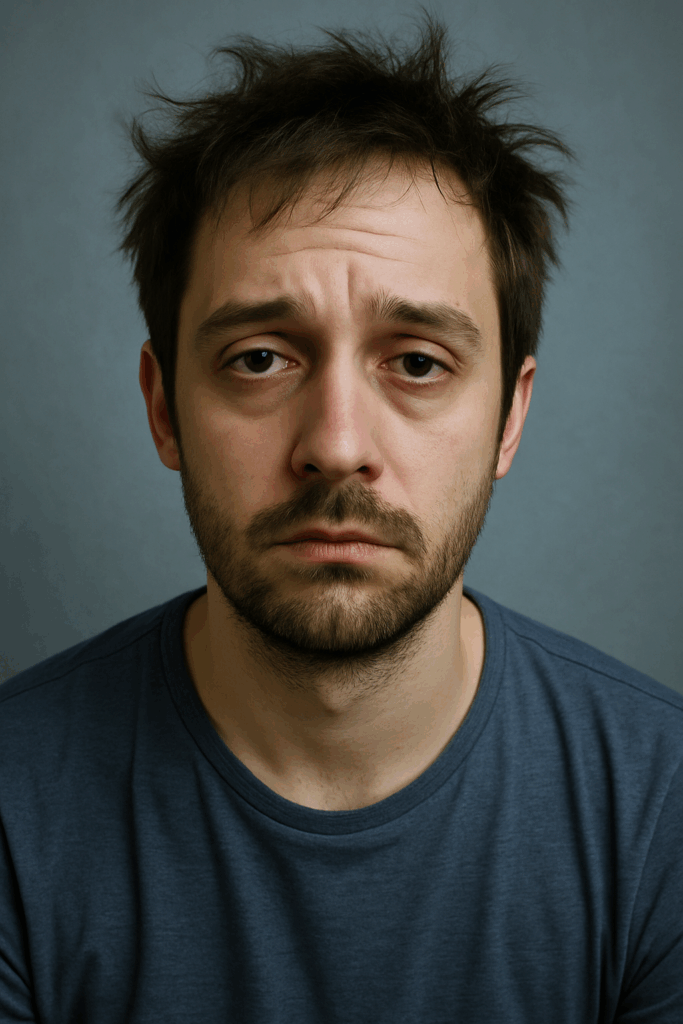Physical Address
335 Treasure Road, Pearce, AZ 85625
Physical Address
335 Treasure Road, Pearce, AZ 85625


Think skipping sleep is no big deal? Think again. Missing out on just a few hours of shut-eye can silently wreak havoc on your body and mind—and most people don’t even realize it until it’s too late. If you’ve been burning the midnight oil or binge-watching your favorite show until 3 a.m., you could be setting yourself up for some serious consequences.
In this post, we’re exposing the dark side of sleep deprivation and what it’s really doing to your mental and physical health. Buckle up—it’s worse than you think.
You’ve heard it before—“just get 7 to 9 hours of sleep.” But why does it matter so much?
Sleep is when your body resets, repairs, and recharges. It’s not just about rest—it’s a critical process that keeps every system in your body functioning. When you don’t get enough of it, your health begins to unravel from the inside out.
Let’s break down the terrifying effects of not getting enough sleep, starting with your brain.
After just one night of poor sleep, your brain’s performance plummets. Your reaction time slows. Focus disappears. Memory gets foggy. That groggy feeling isn’t just in your head—it’s your brain struggling to operate with depleted resources.
Studies show that sleep-deprived brains behave similarly to brains under the influence of alcohol. Think you’re functioning just fine after pulling an all-nighter? You’re actually making decisions like someone who’s legally drunk.
There’s a massive connection between sleep and your mental health—and it’s not just about feeling cranky. Chronic sleep deprivation increases your risk of anxiety, depression, and mood disorders.
Lack of sleep causes imbalances in serotonin, dopamine, and cortisol—the chemicals responsible for mood, motivation, and stress. Without proper rest, your emotional stability takes a nosedive. And it doesn’t take months—just a week of poor sleep can send your mental health spiraling.
Yes, it can get this bad.
Extreme sleep deprivation—especially over several days—can cause hallucinations, paranoia, and symptoms that mirror serious psychiatric conditions. Your brain becomes unable to distinguish reality from imagination, and your risk of accidents skyrockets.
Sleep is when your immune system kicks into high gear. It produces cytokines—proteins that help your body fight infections and inflammation.
But when you don’t sleep, your body doesn’t have the time or energy to produce these protective agents. The result? You get sick more often, and it takes longer to recover. Some studies even suggest that chronic sleep loss can make vaccines less effective.
Sleep deprivation disrupts the hormones that control hunger: ghrelin (the hunger hormone) and leptin (the “I’m full” hormone). When you don’t sleep, ghrelin spikes and leptin crashes, making you feel constantly hungry.
It gets worse—your body also becomes less efficient at processing sugar and fat, increasing your risk of weight gain, insulin resistance, and type 2 diabetes.
Your heart needs sleep just as much as your brain does. During deep sleep, your heart rate slows and blood pressure drops—this is vital recovery time for your cardiovascular system.
Chronic sleep deprivation can lead to high blood pressure, irregular heart rhythms, and even increase your risk of heart attack and stroke. In fact, people who consistently sleep less than six hours a night are significantly more likely to suffer from heart disease.
If the short-term effects don’t scare you, the long-term ones should.
Years of inadequate sleep have been linked to:
And let’s not forget the impact on daily life: poor work performance, lower motivation, and increased risk of car accidents and mistakes on the job.
Here’s the good news: Your body can recover from sleep deprivation—if you make it a priority starting now.
If you’ve been sacrificing sleep for work, social life, or late-night entertainment, it’s time to rethink your priorities. The effects of sleep deprivation go far beyond feeling tired—they can seriously damage your body and mind.
You don’t need to overhaul your life overnight, but taking small steps to prioritize your sleep can transform your health, boost your mood, and maybe even save your life.
Ready to upgrade your sleep game? Explore our top-rated products, expert tips, and sleep hacks at zzsleepz.com—because a better night’s sleep starts tonight.